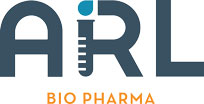Announcing ARL's New Cleanroom
|
ARL's sterility testing cleanroom provides reliable results to verify your people, processes, and drug products are free of contamination.
This pharmaceutical grade facility has cutting edge technology that controls the sample test environment and improves the reliability of your sterility results.
Our cleanroom provides you faster results in a controlled environment you can trust.
Watch the video to learn more about ARL's cleanroom.
|
|
| ARL Bio Pharma's Cleanroom |
Call 800-393-1595 today with questions or to schedule a tour of our facilities.
|
Benefits of Submitting Master Formulation Records
Jessica Munson, M.S., ARL Bio Pharma Analytical Supervisor
What is a Master Formulation Record?
A Master Formulation Record is used to document the specific information for each individual batch and is an important component of regulatory compliance and effective process control. This detailed record of procedures describes how the drug product is to be prepared. According to USP <795> and <797>, a Master Formulation Record must be created for:
- each unique formulation of a compounded nonsterile preparation (CSNP)
- compounded sterile preparations (CSP) for more than 1 patient
- CSP from nonsterile ingredient(s)
Visit
USP <795> and
<797> for more information on a Master Formulation Record and its required contents.
Master Formulation Records and Potency Testing
It's important for a pharmacy to receive potency results in the time requested.
Submitting a Master Formulation Record with every sample helps improve on-time delivery to the pharmacy and reduces potential out-of-specification (OOS) investigations.
This allows for any discrepancies to be caught during accessioning of the sample, analysis of the sample, and/or reporting of the results. Thus, reducing the need for additional client communication to answer questions that might arise. Some questions that can quickly be answered using the Master Formulation Record are:
- What form of Active Pharmaceutical Ingredient (API) is to be reported (i.e. Fentanyl vs. Fentanyl Citrate)?
- Was the formulation compounded using raw material, a triturate, or a commercial product?
- Was water content/LOD accounted for during compounding?
- Was the product formulated on a per weight basis or a per volume basis?
Master Formulation Records are essential to providing the laboratory necessary information on how the drug product is prepared. It gives a thorough view of your pharmacy's processes and aids our laboratory in providing you high-quality results.
For more information about submitting Master Formulation Records, contact ARL at 800-393-1595 or
info@arlok.com.
|
|
|
Validated Potency Methods Update
ARL has completed validating potency methods for the drugs listed below. The validation protocols and
criteria are based on requirements in USP <1225> as well as FDA and ICH guidelines.
Potency testing using these methods is provided at no additional cost and allows us to remove the
non-validated disclaimer from the CoA.
These validated methods use the HPLC instrument to test for potency and are designated on the CoA as AMIF.
Click on the links below for the method validation summary documents that you may save for your records.
HPLC vs. AMIF FAQ
Q. What is the difference between HPLC and AMIF test methods?
Both HPLC and AMIF test methods use the HPLC instrument to test the potency of active pharmaceutical ingredients (APIs) in a compounded preparation.
The difference between HPLC and AMIF test methods is the HPLC method is a non-validated method and AMIF is a validated method.
Q. What is the difference between a non-validated and validated method?
A non-validated method is a published or internally developed method for a specific API based on USP guidelines.
A validated method is an internally developed and verified method for a specific API based on USP, FDA, and ICH guidelines.
Q. Why does my CofA say AMIF method?
ARL has developed validated methods using the HPLC instrument for the most commonly tested APIs. The validated methods are designated on the CoA as AMIF.
The validation protocols and criteria are based on requirements in USP <1225>
as well as FDA and ICH guidelines. The validation includes specificity, system suitability, accuracy, filter qualification, precision, and linearity and
is designed to fit the intended purpose for testing the potency of your API.
Potency testing using these validated methods is provided at no additional cost and allows us to remove the non-validated disclaimer from the CoA.
Stay tuned for more validated methods in the coming months!
|
Register to Attend the Quality Compounding Summit
Join us for our 2019 Quality Compounding Summit in Nashville, TN, September 5-7. We have a fantastic speaker line-up focusing on quality issues in compounding for non-sterile, sterile, and veterinary pharmacies.
|
Session
|
Speaker
|
| The NEW USP <795> - Is Your Pharmacy Ready? |
Jon Pritchett, PharmD, RPh
Accreditation Commission for Health Care (ACHC) |
| Compounding: Living on the Edge - Adventures, Risks, and Rewards |
Thomas C. Kupiec, PhD
ARL Bio Pharma |
| What's new in USP <797>? |
Brenda Jensen, CPhT, CNMT, MBA
Compounding Consultants, LLC
Lisa Ashworth, BS Pharm, RPh, FACA
Children's Health System of Texas |
| Don't let your Practice go to the Dogs - Quality Issues in Veterinary Compounding |
Gigi Davidson, BSPharm, DICVP, FACVP, FSVHP
Vetpharm Consulting, LLC |
| USP <800> Made Simple |
Bryan Prince, MBA
Lab Red Pharmacy Consultants |
| News, Weather, and Sports in Pharmaceutical Compounding |
Loyd V. Allen, Jr., PhD, RPh
International Journal of Pharmaceutical Compounding (IJPC)
|
Save $25 off registration with promo code SUMMER25.

|
ARL will be closed Thursday, July 4 in observance of Independence Day.
We wish you and your staff a Happy July 4th!
|
|
|
Submit this coupon with your next sample for $25 off your next test with ARL. One-time use coupon.
|
|
Offer Expires 7/31/2019. (June Newsletter)
 |
|
|
|